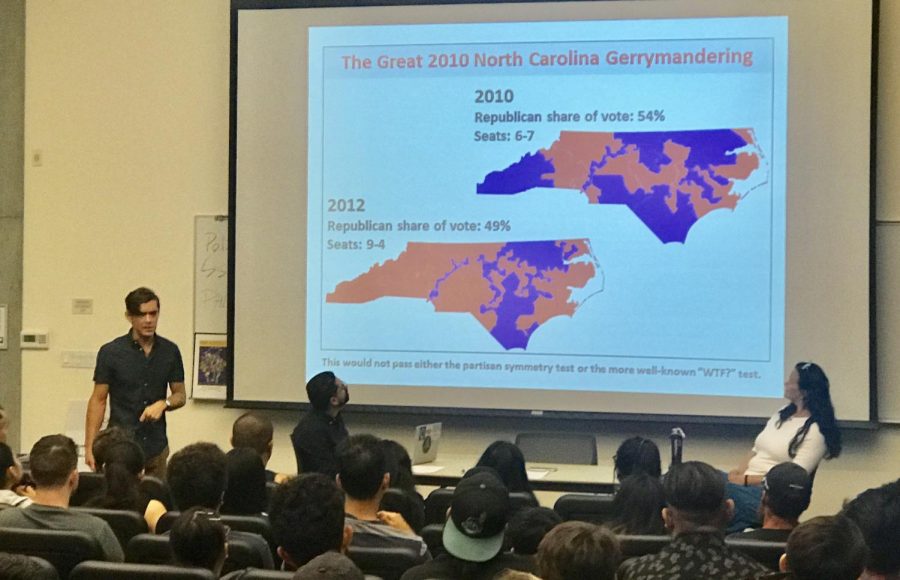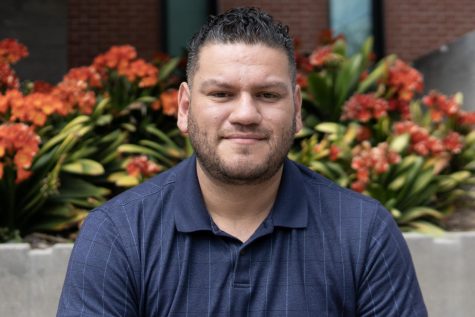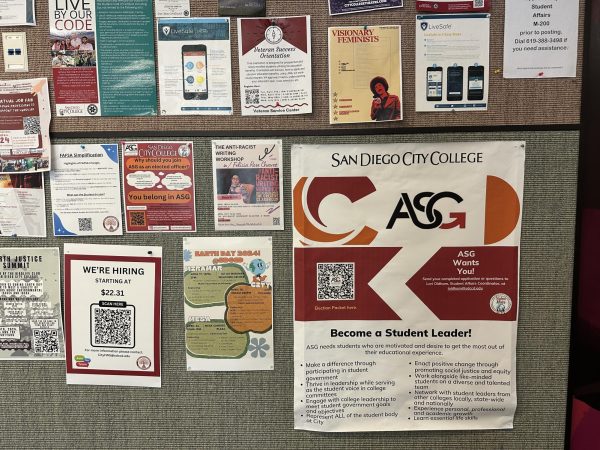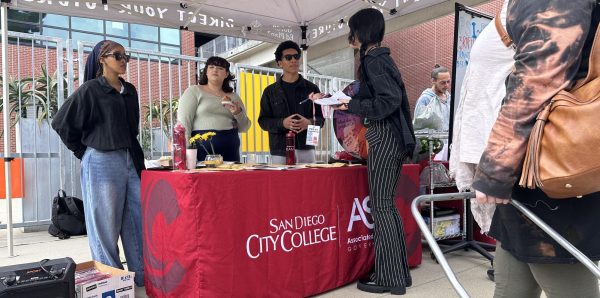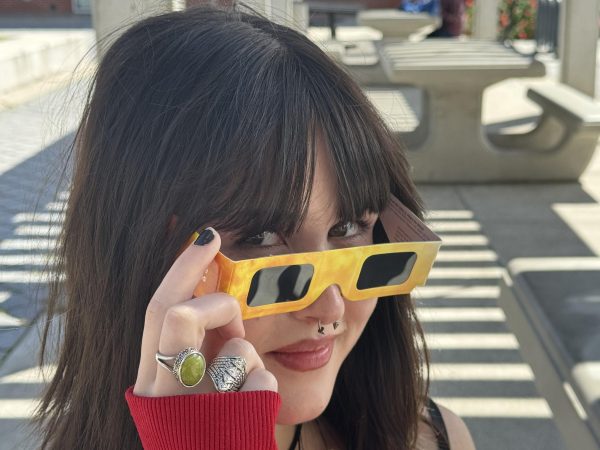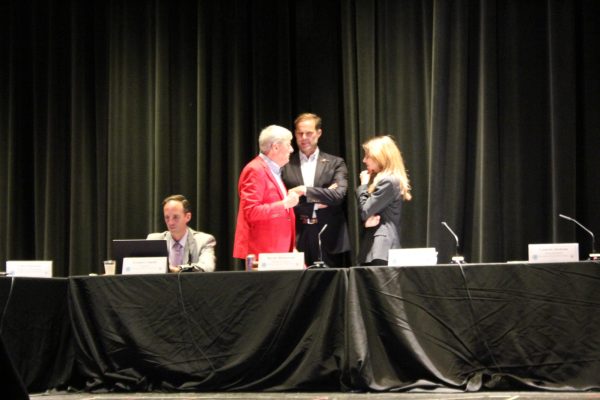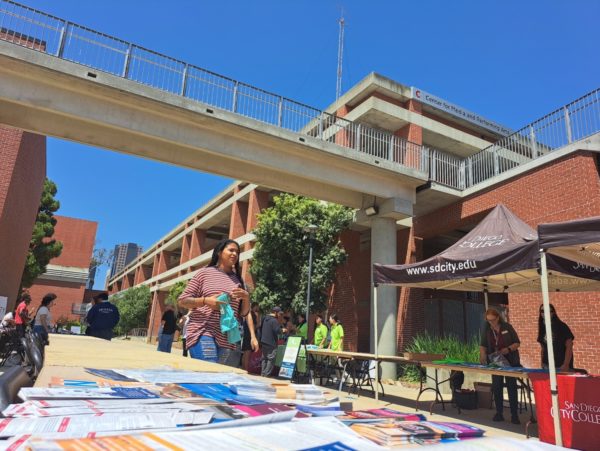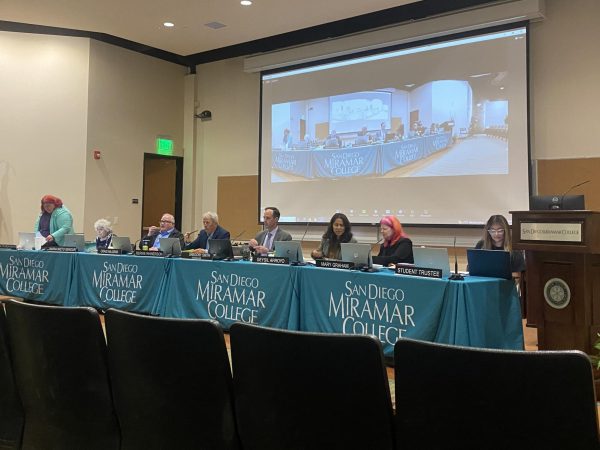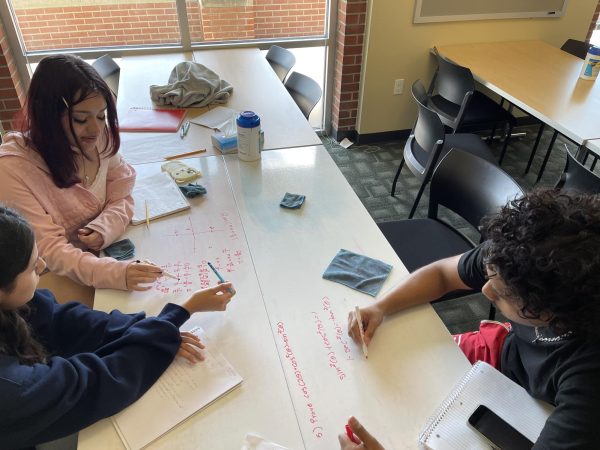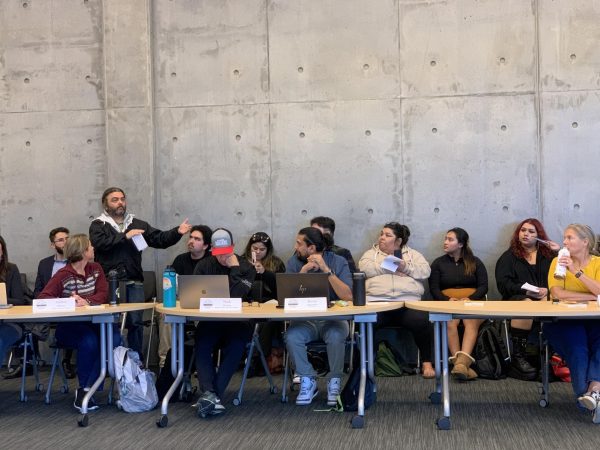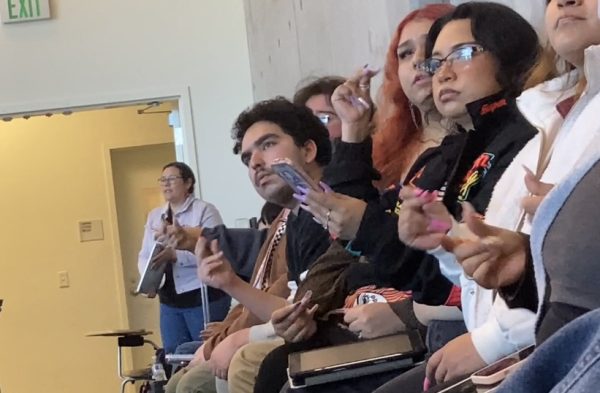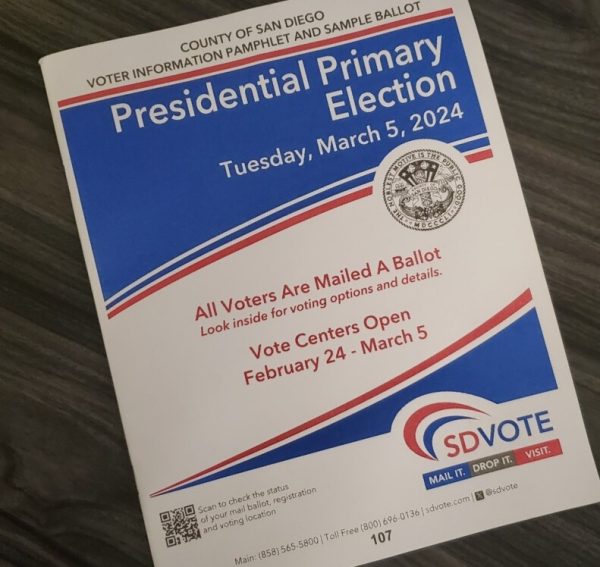City College professors discuss gerrymandering
San Diego City College professors tackle the gerrymandering issue prior to mid-term elections.
Professor Nick Boushee shows the effect of gerrymandering in North Carolina. By Jonny Rico.
September 12, 2018
How important is gerrymandering? How do we detect gerrymandering? Is it ethical?
A panel of San Diego City College professors looked critically at this issue in an interdisciplinary discussion on Sept. 11.
Three professors from the Political Science, Math and Philosophy departments spoke to a group of approximately 100 students.
People voting for their representation in government is the bedrock of this nation. But when it comes to gerrymandering, “legislators pick their voters as opposed to the other way around,” said City College professor Nick Boushee.
District lines are redrawn every 10 years following the U.S. census. But how does the public know when they’ve been gerrymandered and what effect does it have on society?
“Math is how we detect gerrymandering,” said City College alumni and professor Rob Rubalcaba.
Using math to look at the number of representatives in one political party or another compared to the population and voter registration is a red flag, Rubalcaba said.
But even if redrawing of district lines is allowed by the U.S. Constitution, questions arise about the ethics.
Philosophy professor Soon-Ah Fadness says there is no clear yes or no answer to that question and the response depends on an individual’s ethical belief system.
Under the direction of a belief system called ethical egoism, Fadness said it is ethical to look out for one’s best interest first. Under this belief system, Fadness said, gerrymandering is ethical.
Under the belief system of utilitarianism, which looks for the best outcome for the most amount of people, gerrymandering is still not able to be defined as ethical or unethical, according to Fadness.
”It depends on what you consider as ‘best outcome,’ ” she said.
A second panel focusing on fake news will be held at MS-162 on Oct. 4.


